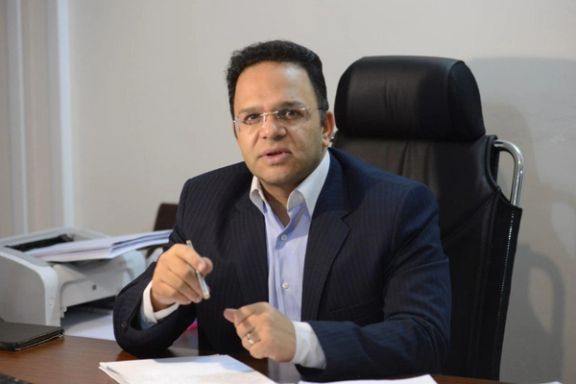Iranian Pundit Says Tehran-Washington Secret Talks Will Continue

Tehran media speculate about a possible meeting between US and Iranian officials on the sidelines of the UN General Assembly in September.

Tehran media speculate about a possible meeting between US and Iranian officials on the sidelines of the UN General Assembly in September.
While it remains unclear whether such a meeting will take place and, if it does, who will take part, it is possible that the two sides engage in indirect or even direct contacts during the United Nations General Assembly.
Iranian political analyst Rahman Ghahremanpour told Rouydad24 website in Tehran on Wednesday that there is a good chance Tehran and Washington will use the UN General Assembly as a good opportunity to make adjustments in their positions to resolve some differences that hinder more negotiations.
He added that the presence of high-ranking officials such as Presidents Joe Biden and Ebrahim Raisi would provide a good opportunity to untangle thorny issues. However, Ghahremanpour believes that there are two different issues in the way: the willingness to solve problems and the ability to make progress.
He said that the recent deal to exchange prisoners and release Iran’s assets frozen in foreign banks due to US sanctions indicates that the administration of Ebrahim Raisi has concluded that it wants to resolve outstanding issues with Washington but the secrecy surrounding the agreement indicates that the Iranian regime does not seek media attention fearing a backlash from its hardliner supporters.

“We have seen in recent months that Iranian officials are revealing the least possible amount of information to the public, with most information coming from the Americans,” he said, arguing, “This indicates that the Raisi administration is concerned about the reactions of its supporters and even reformists regarding the agreement. Therefore, what we see is that the Raisi government is trying to implement this agreement without public proclamation.”
Some believe that the opposite can also be true; that the it is the Biden administration that is trying to avoid publicity about any secret deal beyond the hostage and money release agreement.
Ghahremanpour continued, “People do not have a clear understanding of whether an agreement has been reached or not. The government believes that by using this reticent tactic, domestic opposition will diminish.” He noted however that the problem with this tactic is that it dissipates the positive psychological impact of such an agreement on the country's economic environment.
He added that US President Joe Biden faces a similar challenge from the Republicans, underlining that Raisi has to deal with hardliners who voted for him and oppose any concessions to the United States.
All in all, Ghahremanpour was of the opinion that the next development in the relations between Tehran and Washington will not be shocking. After Iran releases the American prisoners and receives its blocked assets, the two sides will start discussing the nuclear issues, he said. “Their deals will continue covertly as Iran sells its oil and the United States ignores it.”
Earlier in the week, Iranian Foreign Ministry spokesperson Nasser Kanaani discussed the issue of talks about the country’s nuclear program and the removal of sanctions. He however insisted that there is no plan for direct negotiations with the US.
“As was the case in last year's United Nations General Assembly, where both sides showed interest and Iran demonstrated its eagerness to utilize diplomatic channels to lift sanctions, discussions took place on the sidelines of the summit,” he said, underlining that “There were direct talks with the JCPOA members and indirect talks with the United States.”
Last year, Hassan Rouhani, the only Iranian president who has ever spoken to a US president, said he had a chance to talk with Donald Trump when he was in New York in 2019. Rouhani talked with US President Barack Obama over the phone in September 2013. Obama initiated the call when the Iranian president was on his way to the airport to fly back to Iran after attending the UN General Assembly meeting.